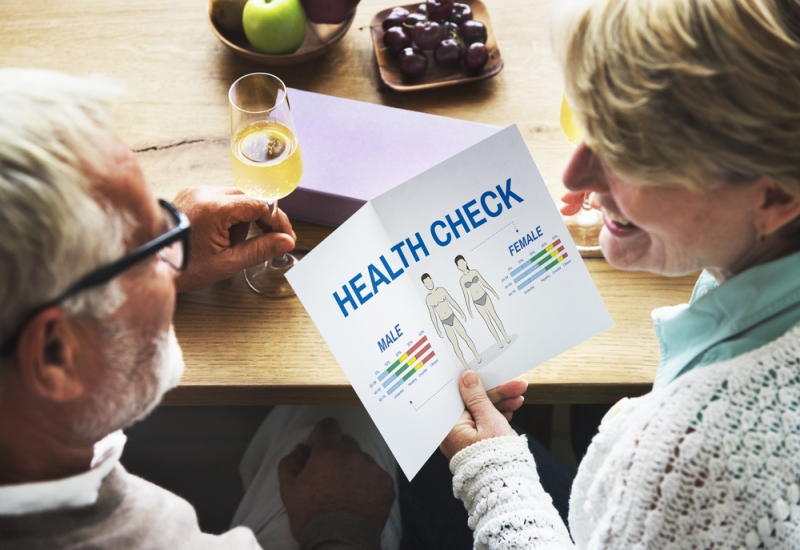Most of us work hard to look after ourselves. Besides making good lifestyle choices, an essential element of an optimal wellbeing is having regular health checks, yet surprisingly few people see their doctor on a routine basis. If you care about maintaining the best possible quality of life, take a look at these reasons why regular health checks should be at the top of your to-do list.
Health stats
The CDC found that many in the US do not get important cancer screenings. Around 20% of women don’t get regular screenings for cervical cancer, while around 25% have not had recent breast cancer screening tests. Nearly 40% of adults did not have their recommended colorectal cancer screening.
These numbers are concerning as screenings for cancer and other health conditions are vital in preventing serious illnesses and saving lives.
Find problems early
Many health-related tests check for illnesses early, sometimes before symptoms occur, which can make all the difference. If you learn about a health condition quickly and treat it as soon as possible, then you can increase your chances of living longer and experiencing fewer health problems in years to come.

Better quality of life
While many screenings check for life-threatening conditions, other health checks look for conditions that primarily affect your quality of life. Health checks for things like seasonal allergies can help you to feel better each day, reducing the stress and bother of taking time off work when symptoms peak.
Health condition prevention
While tests are more for diagnosis rather than giving specific information about prevention and treatment, the outcomes of these checks can guide your health care. Knowing your health status can allow you to focus on preventing illnesses according to your results.
If you receive test results that point toward a condition like pre-diabetes, for example, then this can help your physician to create a diet and exercise plan to reduce the risk of diabetes in the future.
Specific treatable illnesses
Probably the best thing about getting health checks is the accuracy of results for specific conditions. Whether there are certain risk factors, family history, or symptoms, health checks allow you to identify certain health conditions before they become serious.
Women should have cervical cancer screenings every three years starting at age 25. Breast cancer screenings should be scheduled for all women at age 40. Meanwhile, men should regularly perform self-exams for testicular cancer and see a doctor if they find any unusual lumps. During routine exams, men should also ask their doctor to check for this as well.
Colon cancer screenings, typically involving a colonoscopy, should begin for all adults starting at age 50 in the US.
A comprehensive metabolic panel, or CMP test, checks your overall health and is usually ordered during your annual physical exam. It analyses your basic stats and checks whether your major organs are functioning properly, including the liver, kidneys, lungs, as well as your hydration and electrolyte balance.
You probably have your blood pressure tested every time you visit the doctor but cholesterol testing typically requires bloodwork. These screenings are essential to identifying, preventing, and treating heart conditions, which are a major cause of death in the US.
Whether you sunbathe or not, skin cancer screenings can be vital to your health. If you have any concerns over a mole or freckle that is asymmetrical, uneven, or irregular, it’s best to see a dermatologist. Even an open wound or sore that isn’t healing properly can be a sign of dangerous melanoma.
Sexually active adults should seek regular examinations to test for sexually transmitted infections and diseases. Illnesses like chlamydia might be easily treated with antibiotics, and chronic conditions like HIV/AIDS require a regimen of anti-retroviral medications to slow its progress. In any of these cases, the sooner you discover these illnesses, the more likely you are to have a positive health outcome.
Where to get health checks
Take a look at your health insurance when you are thinking of going for a health check. If you have health insurance coverage, it’s best to find out which doctors and facilities are in your network.
Independent laboratories offer just about any test you might need and are convenient and discreet. Additionally, there are a growing number of labs that allow you to order lab tests online so you can limit time spent in the doctor’s office.
Uninsured individuals can check government programs and non-profit organizations for low-cost and free screening options. Women who do not have insurance and meet certain criteria can get cervical and breast cancer screenings through a CDC early detection program. Free clinics are available in many cities and provide important health checks at no cost to patients who are uninsured and do not qualify for government medical coverage.
From finding and treating illnesses early to managing specific health conditions, there are many reasons why health checks are important. Remember that everyone needs routine health checks, regardless of their medical history. Even if you are uninsured, check for free or low-cost options to get your test and make sure you’re doing everything you can to look after your health.


